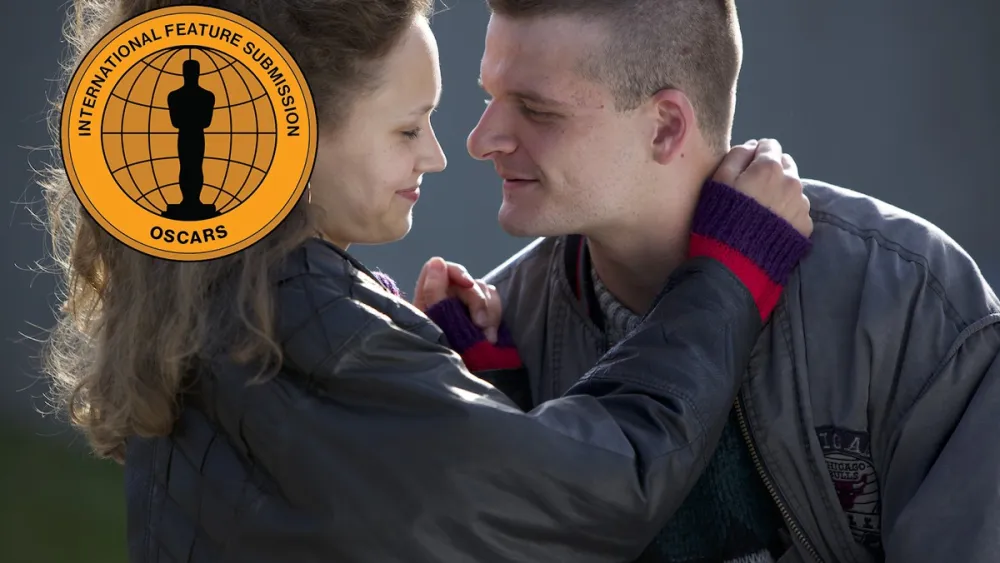Copyright Variety

It’s easy to see why director Ignas Miškinis’ earnest coming-of-age dramedy “The Southern Chronicles” hit it big with Lithuanian audiences, becoming the country’s highest-grossing film of all time and racking up a slew of Silver Crane awards. Both the leading man’s charisma and the setting’s local color shine through immediately, gifting us with a winning hero and an upbeat, lively journey. The hilarious hijinks that ensue are centered on a rugby-playing rascal whose initial interests in pulling chicks and working get-rich-quick schemes give way to a lifelong love of writing poetry in the post-Soviet-occupation era of the 1990s. Picked as the country’s official submission for the Academy Awards’ international feature category, it’s a rollicking crowd-pleaser realized by a fresh, assured voice in filmmaking. Smart aleck 17-year-old Rimantas (Džiugas Grinys) is a lovable lughead whose main goal in life is to not be viewed as a loser, as he says in his insightful narration. Needless to say, he’s got a ways to go. He’s a typical high schooler in the economically depressed south end of Šiauliai, ribbing his teacher (Rasa Samuolyte) during class, cooking up unwieldy business plans with dweeby best friend Minde (Robertas Petraitis) and playing rugby with the best team in the league. His youthful acerbic hubris frequently gets him into trouble with the authorities as he mouths off and sells off-brand goods on the black market, much to the chagrin of his put-upon parents (Algirdas Dainavicius and Dovile Silkaityte). He’s caught in a rinse-repeat cycle of these destructive patterns, but doesn’t seem to mind it much. Things begin to gel for Rimantas once he prioritizes getting a girlfriend. After a disastrous attempt at bedding Minde’s ex-girlfriend Edita (Vaidilė Juozaitytė), our flat-top sporting hero with a crooked smile meets Monika (Digna Kulionytė), an ambitious, studious beauty from the middle-class area of town. She’s well-versed in the arts, voraciously reading acclaimed novels and playing various musical instruments. Rimantas’ interest in her opens up his insular world, as she spurs him to expand his education by regularly checking out books from the library and, later, taking his writing studies seriously. He even nabs a respectable gig, earning extra cash as a nightclub bouncer and janitor. But as the pair’s romance blossoms, class disparities threaten to tear them apart, from her classmate Mantas’ (Matas Dirginciu) jealousy to her disciplinarian dad’s (Dainius Gavenonis) disapproval. Miškinis and writer Eglė Vertelytė (who adapts Rimantas Kmita’s semi-autobiographical novel) masterfully dodge genre tropes, avoiding confining their characters to simplistic labels and keeping the focus of their arcs self-motivated. There’s more than meets the eye with this couple. Their introductions have us believe that Rimantas is an airhead jock who is only swayed by Monika’s Manic Pixie Dream Girl-esque, universe-disrupting ways. Though Monika fits the aforementioned archetype, crashing into Rimantas’ world in a meet-cute involving goofy party games, she eventually defies that mold as every transformation her presence inspires also leads him to experience a setback. To see him rise above those challenges is where the heartening drama transpires, especially when he starts dating leggy blonde artist Jurga (Irena Sikorskytė), who encourages him to better himself through his poetic pursuits. The film splices together homages to John Hughes-penned romcoms, evoking the party sequences in “Pretty in Pink” and “Some Kind of Wonderful” to highlight the disparity between the classes. Scenes dealing with Edita’s strawberry-print underpants, Rimantas’ dad’s sex book and the Walkman playing “Bolero” feel like remnants from sex comedies of a bygone time, like the “American Pie” franchise, to spotlight the outlandishness of Rimantas’ sophomoric sexual inexperience. Yet all those inspired pulls are disguised enough so their inclusion never reads as derivative nor reductive. But it’s Danny Boyle’s “Trainspotting” that seems to be the primary touchstone for the propulsive momentum and aesthetic aspirations of “The Southern Chronicles.” Miškinis and his players construct their indelible characters in similar fashion, making the personalities endearing and memorable in the material and performances. Grinys’ teddy-bear demeanor and hulking form provide an interesting juxtaposition informing Rimantas’ internality. He, Kulionytė and Sikorskytė turn in magnetic work, crafting effervescent chemistry, getting us invested in their spiraling saga. The trio share subtle, naturalistic comedic timing. Miškinis, cinematographer Narvydas Naujalis and editor Danielius Kokanauskis capture the electrified energy of the rugby matches, the texture of the local landscapes, and the feeling of boisterous New Year’s Eve parties by utilizing handheld cameras, music video style cuts and mixed-media and formatting shifts. A few segments look like they were shot in the ’90s. Skillful use of montage gives the film a tactile quality as the ensemble explores the city. Plus, it echoes its inspirations within the beats of a stellar, nostalgia-fueled soundtrack, replete with period-appropriate hits by Enigma, Technotronic and Culture Beat. Tackling thematic and historic ties to identity, connecting the protagonist’s search for self to that of a reborn country figuring out its emerging political persona, leads to fertile ground for storytelling. While the film tends to feel its extended run time by the final act, the dénouement hits with a glorious gut-punch, ending on one last poem from Rimantas as Minde sits on the seashore-like driftwood. We’re not exactly sure how these lives will continue to transform as they make mistakes, survive and thrive. We can only have hope and faith they will find their groove.



